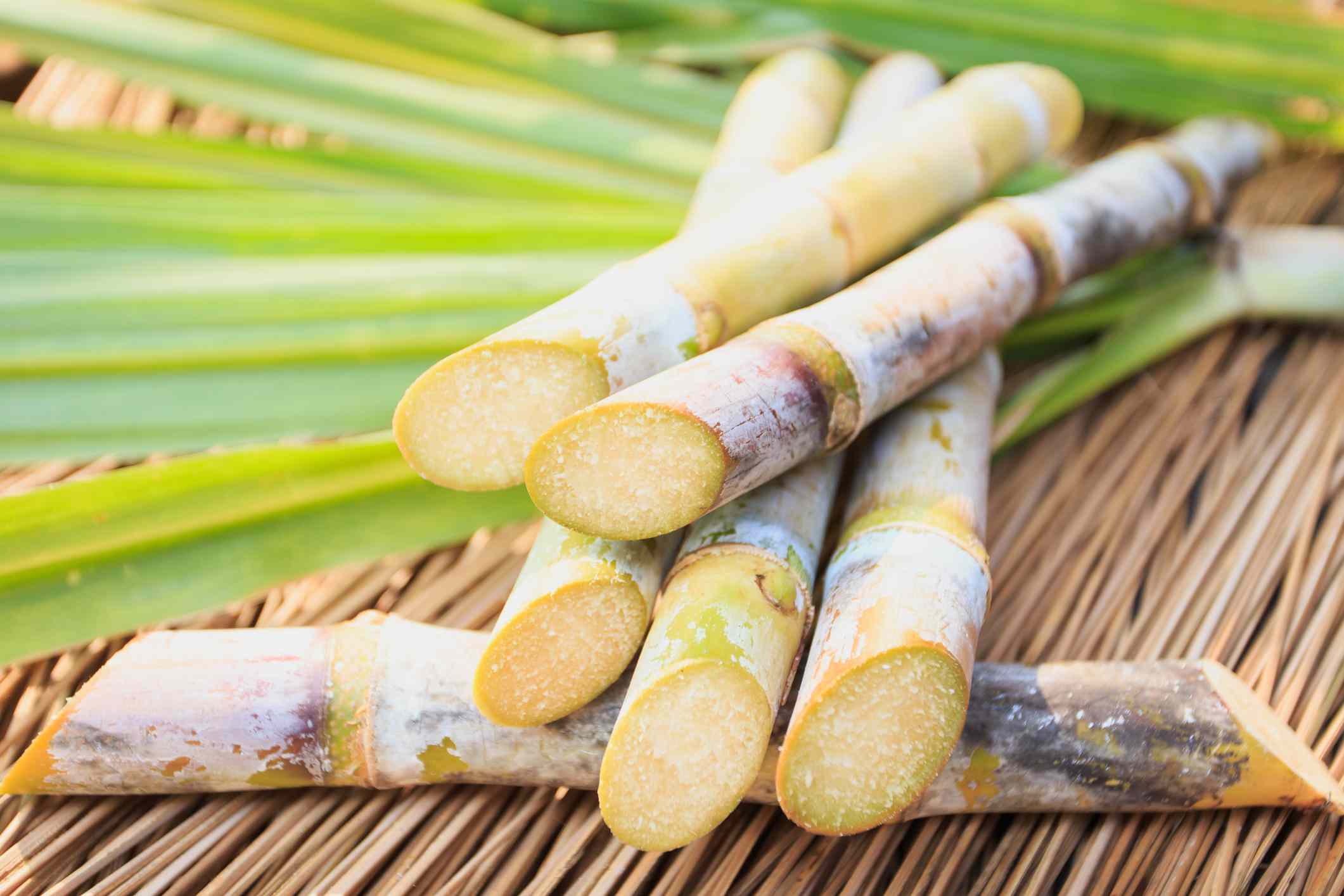A Comprehensive Introduction of the Wellness and Economic Implications of Walking Cane Sugar Handling on Regional Neighborhoods
Walking cane sugar handling plays a crucial duty in forming the financial landscape of local areas, providing employment possibility and promoting secondary sectors. However, the health implications connected with high sugar intake can not be forgotten, as they add to climbing prices of excessive weight and diabetes. This nuanced vibrant invites a vital examination of just how communities can optimize financial gains while resolving the pressing health and wellness challenges they face. The expedition of sustainable techniques and academic initiatives might just hold the secret to integrating these contrasting rate of interests. What strategies might areas execute to attain this balance?
Economic Advantages of Walking Stick Sugar Processing
Walking stick sugar processing uses considerable financial advantages that extend past the instant farming market. The cultivation and handling of sugarcane produce various task possibilities, from farming to manufacturing and distribution. This employment generation not only sustains local economies but also fosters area development by supplying steady earnings resources for households.
Additionally, the sugar industry promotes ancillary services, including transportation, tools supply, and packaging services (Cane Sugar Processing). As these markets expand, they add to an extra durable financial framework, improving general community resilience. The export possibility of processed walking cane sugar better intensifies financial benefits, placing areas as competitive players in international markets
Financial investment in contemporary handling centers can result in increased efficiency and effectiveness, thereby minimizing waste and maximizing source usage. This change not just profits the local economic situation but likewise supports sustainability efforts by minimizing environmental influences.
Furthermore, the profits generated from walking cane sugar processing can be reinvested in local framework, education, and medical care, promoting all natural area development. Overall, the economic advantages of cane sugar handling are diverse, offering a foundation for enduring success in agricultural areas.
Health Dangers Linked With Sugar Intake
Extreme sugar consumption presents significant health and wellness dangers that warrant serious focus. High intake of included sugars, specifically from processed drinks and foods, has been connected to many wellness complications.
In addition, high sugar usage is related to cardio disease. Raised blood glucose levels can cause insulin resistance, a forerunner to various heart-related concerns. In addition, sugar can have detrimental impacts on dental health, causing cavities and gum tissue disease, as bacteria in the mouth prosper on sugar, producing acids that wear down tooth enamel.
In addition, emerging study suggests a prospective web link in between high sugar usage and psychological health disorders, such as clinical depression and stress and anxiety. As neighborhoods face these health dangers, it comes to be important to promote awareness and motivate much healthier dietary choices. Resolving sugar consumption is critical not just for individual health yet likewise for the overall well-being of regional communities, emphasizing the demand for thorough public health methods.
Ecological Impacts of Sugar Manufacturing
Frequently forgotten in discussions regarding sugar's effects is the substantial ecological influence of sugar manufacturing. The farming of sugarcane usually requires substantial land use, leading to logging, loss of biodiversity, and disturbance of local environments. The conversion of woodlands and wetlands right into sugar vineyards can result in habitat destruction, harmful many types and modifying ecological balance.
Moreover, sugar manufacturing is resource-intensive, consuming considerable amounts of water for link irrigation. This can lead to deficiency of neighborhood water sources, negatively influencing both farming methods and community accessibility to tidy water. Furthermore, the usage of chemical fertilizers and chemicals in sugarcane farming can add to soil degradation and water air pollution, as overflow from these chemicals gets in neighboring rivers and lakes, affecting aquatic life and human wellness.
The environmental footprint includes the handling stage, where energy consumption and waste generation more intensify eco-friendly worries. Air contamination from burning sugarcane fields, along with greenhouse gas discharges, contribute to environment modification. Thus, the environmental effects of sugar production warrant serious consideration, advising stakeholders to embrace even more sustainable methods to reduce these negative results on neighborhood communities and neighborhoods.
Work Creation and Community Growth
The ecological challenges presented by sugar production are frequently counteracted by its potential for economic benefits, specifically in job development and area development. The cane sugar sector offers as a considerable resource of work in many rural locations, offering jobs throughout numerous ability degrees, from agricultural labor to processing and distribution functions. This work not only supports private family members however also adds to the overall economic vitality of regional areas.
Moreover, the establishment of sugar processing centers promotes secondary organizations, such as transport services, equipment supply, and maintenance providers. As these services grow, they create additional work and bolster regional economic situations. The earnings created from the sugar sector additionally results in enhanced tax incomes, which can be reinvested into neighborhood services such as education, infrastructure, and healthcare growth.
In addition, the sugar market typically participates in neighborhood growth efforts, such as sustaining neighborhood institutions and health programs, therefore enhancing the lifestyle for residents. By fostering strong area connections and promoting economic development, the cane sugar handling industry plays a vital duty in uplifting local populaces, making it a crucial element of lasting advancement approaches in sugar-producing regions.
Harmonizing Health And Wellness and Economic Growth
In browsing the complexities of walking stick sugar handling, an important challenge hinges on stabilizing wellness considerations with financial growth. The sugar sector substantially adds to regional economies by producing jobs, promoting relevant sectors, and enhancing go to these guys tax obligation incomes. However, the wellness implications associated with extreme sugar usage can bring about chronic conditions such as weight problems, diabetes, and cardiovascular issues, which can problem public health systems and decrease workforce performance.

Moreover, regulative frameworks can play an essential duty in guiding industry methods in the direction of more health-conscious and sustainable methods. By cultivating collaboration between government bodies, health and wellness companies, and the sugar industry, communities can navigate the dichotomy of health and financial development, making certain that the advantages of cane sugar handling are equitably shared while prioritizing public wellness.
Conclusion
In conclusion, the handling of walking stick sugar provides both significant economic advantages and significant health and wellness threats for neighborhood areas. While it cultivates work production and boosts regional development, the associated wellness problems, specifically concerning obesity and diabetes, necessitate a careful balancing act. By advertising liable usage and investing in neighborhood education and learning and sustainable practices, it is feasible to take full advantage of financial advantages while lessening unfavorable health effects, thus ensuring a much healthier future for regional populations.
Furthermore, sugar can have harmful effects on Extra resources dental health and wellness, resulting in cavities and gum disease, as microorganisms in the mouth prosper on sugar, producing acids that erode tooth enamel.
Dealing with sugar intake is critical not only for individual wellness yet likewise for the total wellness of neighborhood areas, highlighting the need for thorough public health strategies.
Frequently forgotten in discussions concerning sugar's implications is the substantial ecological influence of sugar production. The wellness implications associated with extreme sugar usage can lead to chronic diseases such as excessive weight, diabetic issues, and cardiovascular problems, which can problem public health systems and decrease workforce productivity.

Comments on “Advanced Cane Sugar Processing: Enhancing Effectiveness and Sustainability”